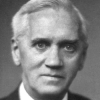Alexander Fleming

Alexander Fleming
Sir Alexander Fleming FRS FRSE FRCSwas a Scottish biologist, pharmacologist and botanist. His best-known discoveries are the enzyme lysozyme in 1923 and the antibiotic substance benzylpenicillinfrom the mould Penicillium notatum in 1928, for which he shared the Nobel Prize in Physiology or Medicine in 1945 with Howard Florey and Ernst Boris Chain. He wrote many articles on bacteriology, immunology, and chemotherapy...
NationalityScottish
ProfessionScientist
Date of Birth6 August 1881
finds looking
One sometimes finds wehat one is not looking for.
fate hands advice
I have been trying to point out that in our lives chance may have an astonishing influence and, if I may offer advice to the young laboratory worker, it would be this-never neglect an extraordinary appearance or happening. It may be-usually is, in fact-a false alarm that leads to nothing, but may on the other hand be the clue provided by fate to lead you to some important advance.
distance self growth
It was astonishing that for some considerable distance around the mould growth the staphococcal colonies were undergoing lysis. What had formerly been a well-grown colony was now a faint shadow of its former self...I was sufficiently interested to pursue the subject.
powerful negative different
It has been demonstrated that a species of penicillium produces in culture a very powerful antibacterial substance which affects different bacteria in different degrees. Generally speaking it may be said that the least sensitive bacteria are the Gram-negative bacilli, and the most susceptible are the pyogenic cocci ... In addition to its possible use in the treatment of bacterial infections penicillin is certainly useful... for its power of inhibiting unwanted microbes in bacterial cultures so that penicillin insensitive bacteria can readily be isolated.
discovery deep-thought substance
In my first publication I might have claimed that I had come to the conclusion, as a result of serious study of the literature and deep thought, that valuable antibacterial substances were made by moulds and that I set out to investigate the problem. That would have been untrue and I preferred to tell the truth that penicillin started as a chance observation. My only merit is that I did not neglect the observation and that I pursued the subject as a bacteriologist. My publication in 1929 was the starting-point of the work of others who developed penicillin especially in the chemical field.
playing-games able break
I play with microbes. There are, of course, many rules to this play...but when you have acquired knowledge and experience it is very pleasant to break the rules and to be able to find something nobody has thought of.
wine cures sherry
If penicillin can cure those that are ill, Spanish sherry can bring the dead back to life.
health bedtime common
Suggested remedy for the common cold: A good gulp of whiskey at bedtime-it's not very scientific, but it helps.
dark years age
Penicillin sat on a shelf for ten years while I was called a quack.
team discovery ideas
It is the lone worker who makes the first advance in a subject: the details may be worked out by a team, but the prime idea is due to the enterprise, thought, and perception of an individual.
discovery triumph problem
(The discovery of penicillin) was a triumph of accident, a fortunate occurrence which happened while I was working on a purely academic bacteriological problem.
found penicillin
Nature makes penicillin; I just found it.
fall apples people
For the birth of something new, there has to be a happening. Newton saw an apple fall; James Watt watched a kettle boil; Roentgen fogged some photographic plates. And these people knew enough to translate ordinary happenings into something new...
luck antibiotics sometimes
One sometimes finds what one is not looking for.